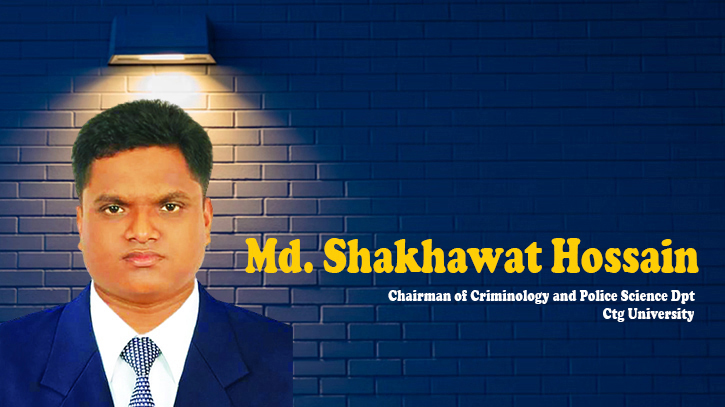
Photo : Messenger
Muhammad Yunus, the Nobel laureate renowned for his groundbreaking work in microfinance through Grameen Bank, finds himself embroiled in a controversy that transcends his accolades. While celebrated globally for his contributions to poverty alleviation, Yunus's actions and associations have come under intense scrutiny, raising profound questions about his integrity and motives. To come out from the controversies, he uses his global personal leverages, emotional words and anti-govt campaign. As a part of it, Dr. Muhammad Yunus left Dhaka for Italy to take part as the keynote speaker at the 2nd Meeting on Human Fraternity to be held in Rome and the Vatican on May 10 and 11 at the invitation of Fondazione Fratelli Tutti.
To get a clear picture of the complexities surrounding Muhammad Yunus's persona requires a deeper dive into the historical context of his rise to prominence and the intricacies of the controversies surrounding him. Muhammad Yunus's journey from an economist to a global icon began with the establishment of Grameen Bank in Bangladesh. Founded in 1983, Grameen Bank aimed to provide microcredit to the poor, particularly women, empowering them to lift themselves out of poverty.
At the heart of the controversy lies Yunus's alleged misuse of funds and questionable business practices, which have cast shadows over his illustrious career. Despite Grameen Bank's establishment under the auspices of the Bangladesh government, Yunus wielded significant control over its operations, establishing a network of 28 affiliated institutions. This consolidation of power has raised legitimate concerns about accountability and transparency within the organisation, prompting calls for greater oversight and scrutiny.
Yunus's innovative approach to poverty alleviation garnered international attention and earned him the Nobel Peace Prize in 2006, cementing his status as a champion of social change and propelled him into the global spotlight. It helped him to earn accolades akin to Bengali luminaries like Amartya Sen and Rabindranath Tagore. However, his entanglement in Bangladesh's tumultuous political landscape, particularly during the 1/11 regime, marked a significant turning point in his career. As a military-backed caretaker government sought to reshape the country's political dynamics, Yunus emerged as a central figure, wielding considerable influence and leveraging his international connections to navigate the complex geopolitical landscape.
Indeed, Yunus's adeptness at cultivating international relationships has been a cornerstone of his strategy, with close ties to figures like former US Secretary of State Hillary Clinton. His influence in US political circles reportedly led to the withholding of World Bank funds earmarked for the Padma Bridge project in Bangladesh, underscoring his global reach and clout. Moreover, Yunus's alignment with the Democratic Party further solidified his position, allowing him to navigate intricate political dynamics to his advantage.
However, Yunus's international standing has not shielded him from allegations of financial impropriety and ethical lapses. Investigations by Norway's state television and subsequent documentaries have shed light on potential corruption within Yunus's network, alleging the diversion of millions of dollars from Grameen Bank to personal ventures like Grameen Kalyan. These revelations, coupled with accusations of mismanagement and lack of oversight within entities like Grameen Fund, have cast a dark cloud over Yunus's once-sterling reputation.
The intricate web of financial transactions and organisational structures surrounding Yunus adds another layer of complexity to the controversy, exacerbating concerns about accountability and transparency. Despite attempts to suppress these revelations, the truth has begun to surface, prompting calls for a thorough investigation into Yunus's conduct and management of resources.
Comparisons to other Nobel laureates embroiled in legal battles serve as a sobering reminder of the fallibility of esteemed individuals. While Yunus's contributions to economic development cannot be denied, they do not absolve him of accountability for alleged wrongdoing. The ongoing scrutiny underscores the need for transparency and accountability, even among those hailed as champions of social change.
Muhammad Yunus's journey from Nobel laureate to embattled figure reflects the complexities of leadership and power. While his achievements have undoubtedly transformed countless lives, questions surrounding his conduct and management of resources demand a thorough investigation. As the spotlight intensifies, the true test of Yunus's legacy lies not only in his past accomplishments but also in his willingness to confront and rectify any ethical lapses. Only through transparency and accountability can he uphold the principles he once championed.
In light of these controversies, Yunus's legacy as a champion of social change hangs in the balance. While his contributions to poverty alleviation cannot be denied, they are overshadowed by allegations of financial impropriety and ethical lapses. The ongoing scrutiny underscores the need for greater transparency and accountability within institutions like Grameen Bank as well as the broader development sector.
Moving forward, it is imperative for both domestic and international stakeholders to critically assess Yunus's actions and uphold principles of fairness and justice. Only through a thorough investigation and a commitment to transparency can the cloud of controversy surrounding Yunus be lifted, allowing for a more nuanced understanding of his contributions to economic development and poverty alleviation.
In conclusion, Muhammad Yunus's journey from Nobel laureate to embattled figure is a cautionary tale of the complexities of leadership and power. While his achievements have undoubtedly transformed countless lives, questions surrounding his conduct and management of resources demand thorough investigation and reflection. As the spotlight intensifies, the question is hovering in mind: how long will Dr. Yunus continue his crocodile-tearing in national and international forums for anti-govt campaigns and for self-drive interest?
The writer is Assistant Professor and Chairman, Department of Criminology and Police Science, University of Chittagong.
Messenger/Fameema








